Find Help
More Items From Ergsy search
-

Neurosurgery for Epilepsy
Relevance: 100%
-
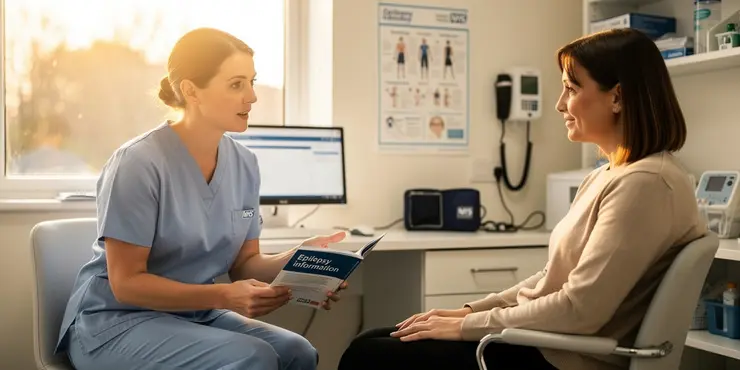
Epilepsy - What is Epilepsy and What Causes Seizures - NHS A to Z - Dr Gill
Relevance: 96%
-

Epilepsy - My Story | NHS
Relevance: 95%
-
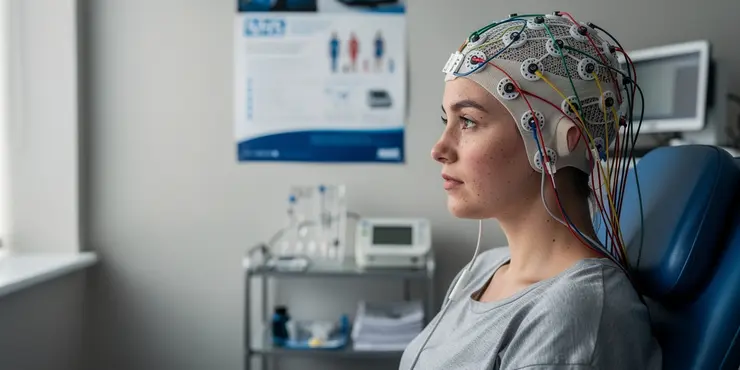
Epilepsy research: EEG | NHS
Relevance: 91%
-
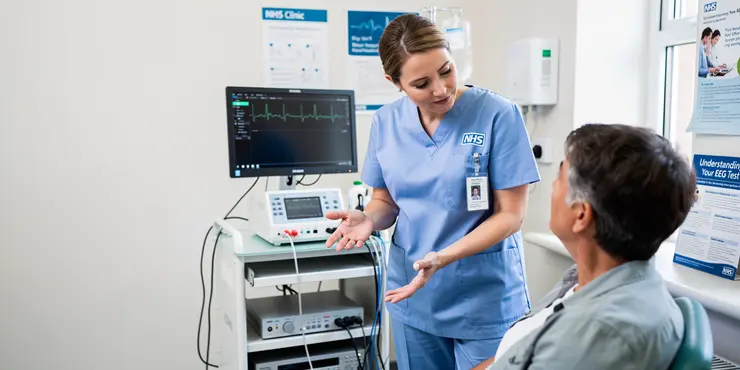
Epilepsy research: EEG | NHS
Relevance: 87%
-
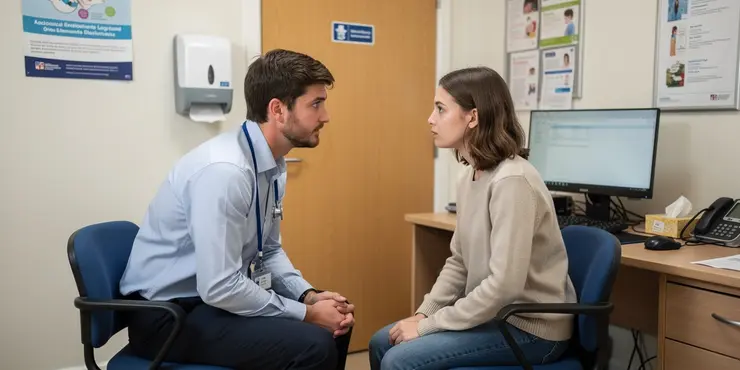
Can meningitis cause long-term complications?
Relevance: 31%
-
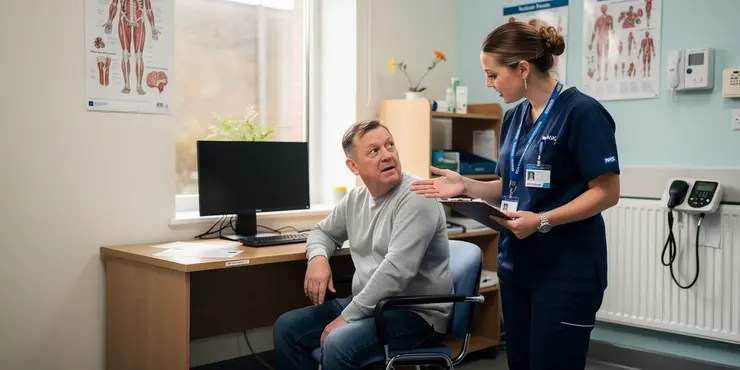
What are the potential benefits of CBD?
Relevance: 29%
-

Are there health benefits to using cannabis extract?
Relevance: 28%
-
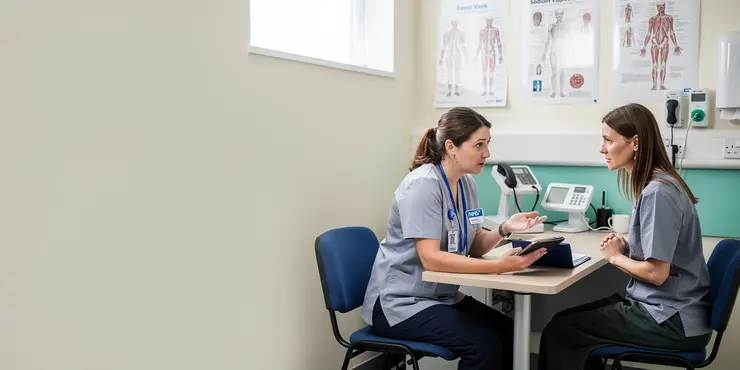
Am I affected by Sodium Valproate?
Relevance: 28%
-

What is CBD?
Relevance: 26%
-
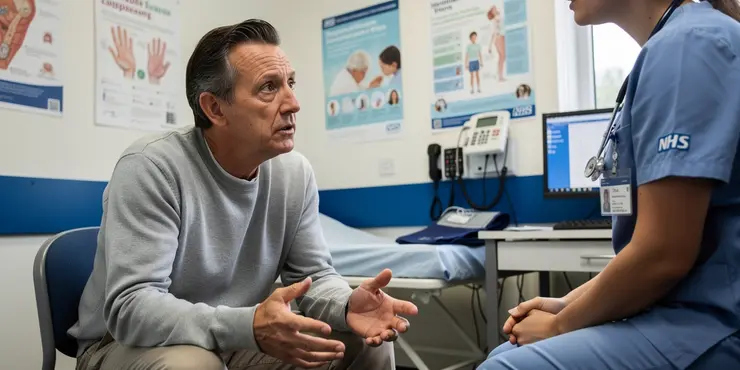
What are the uses of cannabis extract?
Relevance: 20%
-
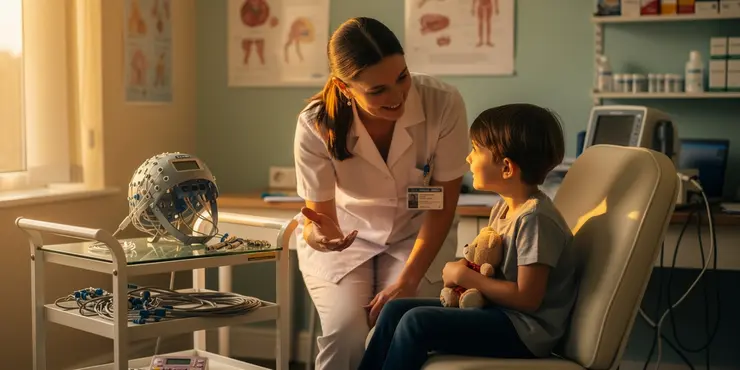
What happens when my child has an EEG?
Relevance: 18%
-
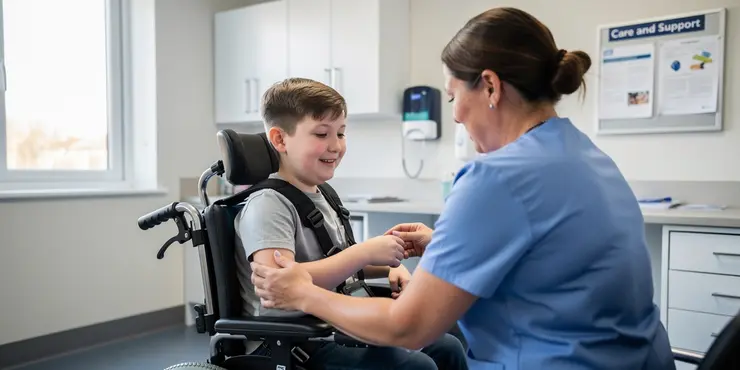
Profound intellectual and multiple disabilities | NHS
Relevance: 18%
-
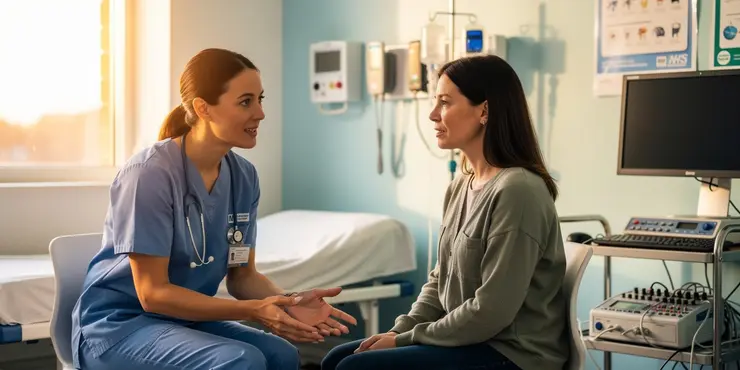
Neurophysiology EEG Patient Information
Relevance: 18%
-
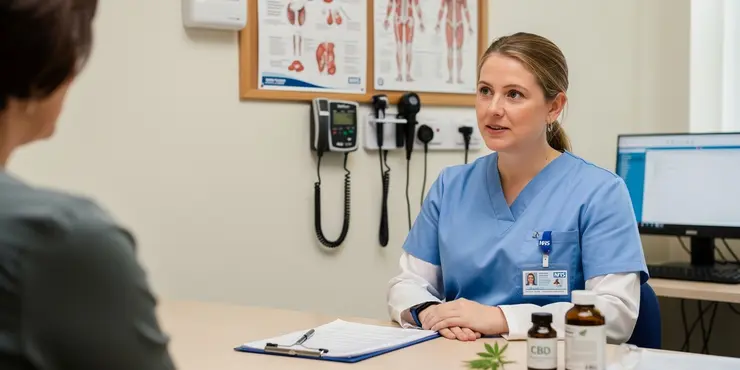
How does CBD work?
Relevance: 16%
-
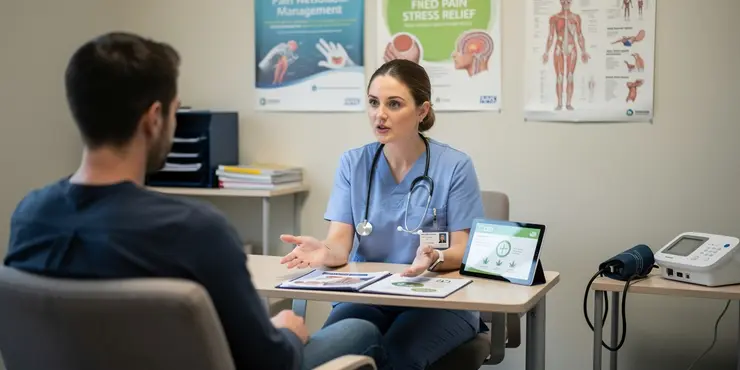
What is CBD?
Relevance: 16%
-
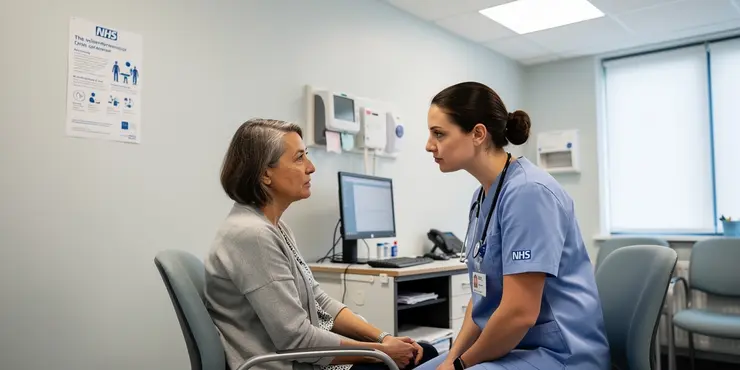
Is CBD legal?
Relevance: 12%
-
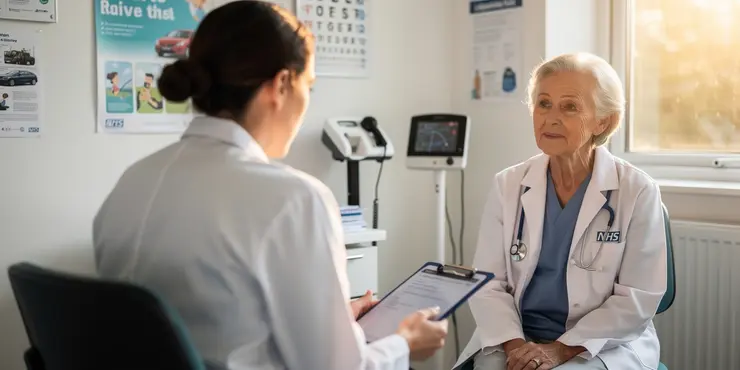
Are there legal requirements regarding driving for seniors over a certain age?
Relevance: 12%
-
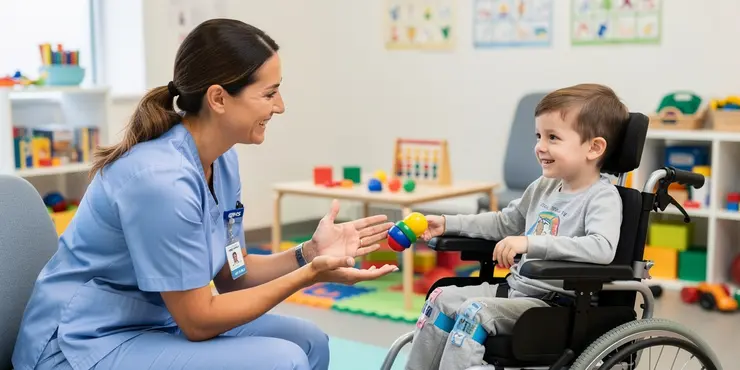
Cerebral palsy | NHS
Relevance: 12%
-

How potent is cannabis extract?
Relevance: 12%
-
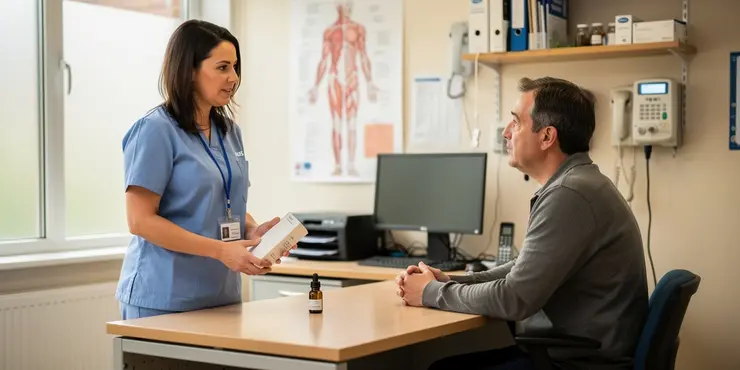
What is the entourage effect in relation to cannabis extracts?
Relevance: 12%
-

Is cannabis extract legal?
Relevance: 11%
-
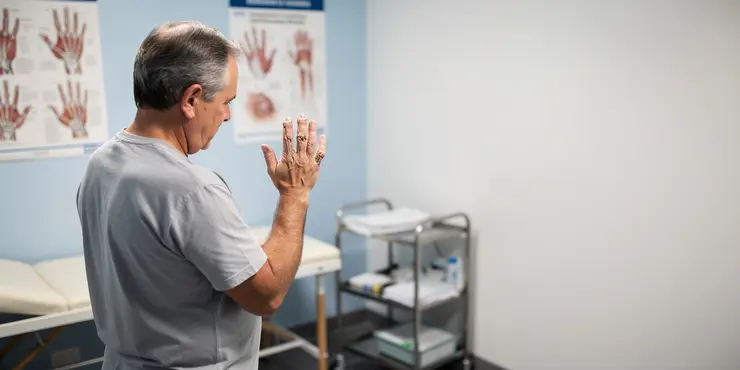
Dupuytrens
Relevance: 6%
-

What is cannabis extract?
Relevance: 6%
-

What is a Subarachnoid Hemorrhage?
Relevance: 6%
-
Can you overdose on CBD?
Relevance: 6%
-
How is cannabis oil different from other extracts?
Relevance: 5%
-
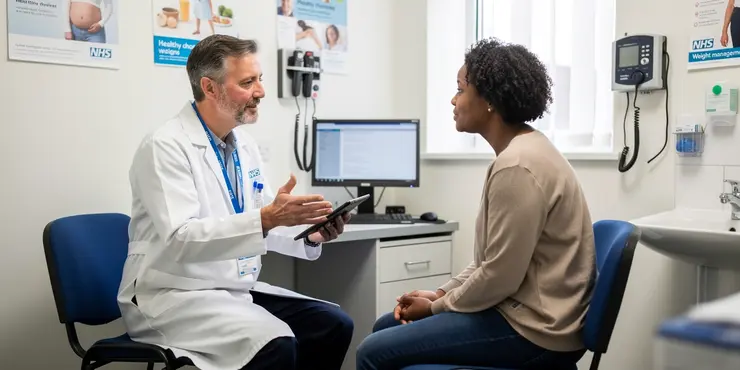
What are the less common but serious side effects of weight loss drugs?
Relevance: 5%
-
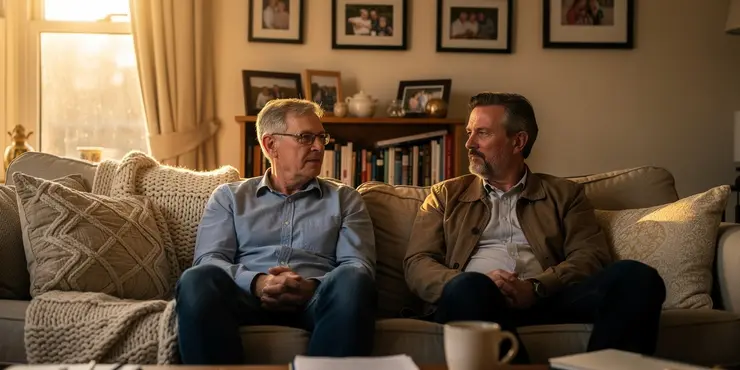
Can adults have autism?
Relevance: 5%
Epilepsy - My Story
Introduction to Epilepsy
Epilepsy is a common neurological condition that affects the brain and causes frequent seizures. These seizures are caused by sudden bursts of electrical activity in the brain, disrupting the normal communication between brain cells. In the UK, it is estimated that around 600,000 people have epilepsy.
Discovering My Condition
My journey with epilepsy began in my teenage years when I experienced my first seizure. Initially, I was terrified and confused, not understanding what was happening to me. It took several visits to my GP and a series of tests at the neurology department to diagnose epilepsy. Learning about my condition was the first step in managing it effectively.
Living with Epilepsy
Living with epilepsy has been challenging, but it has also taught me resilience and self-awareness. Managing epilepsy involves taking daily medications, attending regular check-ups, and monitoring my lifestyle to avoid triggers like lack of sleep and stress. The NHS has been an invaluable support network, providing me with access to specialists, advice, and resources.
NHS Support and Resources
The National Health Service (NHS) offers extensive support for individuals with epilepsy, from initial diagnosis to ongoing management. They provide access to neurologists, epilepsy nurses, and support groups. Additionally, the NHS website offers a wealth of information on lifestyle tips, medication options, and emergency procedures. The Epilepsy Action and Epilepsy Society also run proactive campaigns to raise awareness and provide support.
Conclusion
Although living with epilepsy can be daunting, with the right support and management, it is possible to lead a fulfilling and active life. Sharing my story is my way of raising awareness and letting others know they are not alone in their journey. The NHS continues to play a crucial role in supporting individuals with epilepsy across the UK, ensuring they have access to the care and resources they need.
Epilepsy - My Story
Introduction to Epilepsy
Epilepsy is a health problem. It affects the brain and causes seizures. A seizure happens when there is a sudden rush of electricity in the brain. This can cause the person to behave differently for a short time. About 600,000 people have epilepsy in the UK.
Discovering My Condition
I found out I had epilepsy when I was a teenager. I had my first seizure then. It was scary because I did not know what was happening. I went to see my doctor many times and had tests. This helped the doctors know I had epilepsy. Learning about epilepsy was the first thing I did to manage it better.
Living with Epilepsy
Having epilepsy is not easy, but it has made me stronger. To manage epilepsy, I take medicine every day. I also go for regular check-ups with my doctor. I try to avoid things that can cause seizures, like not sleeping enough or being stressed. The NHS helps me a lot. They give me support and advice.
NHS Support and Resources
The NHS helps people with epilepsy. They help from the time a person is told they have epilepsy. They have doctors, nurses, and support groups to help. The NHS website has lots of useful information. It tells you about lifestyle, medicines, and what to do in an emergency. Groups like Epilepsy Action also help by running campaigns to raise awareness.
Conclusion
Living with epilepsy can be hard. But with help, you can live a happy life. I share my story to help others with epilepsy know they are not alone. The NHS keeps helping people with epilepsy in the UK. They make sure we get the care and information we need.
Frequently Asked Questions
What is epilepsy?
Epilepsy is a neurological condition that affects the brain and causes frequent seizures.
What causes epilepsy?
Epilepsy can be caused by various factors, including brain damage, infections, genetic factors, and sometimes the cause is unknown.
What are the types of seizures in epilepsy?
There are several types of seizures, including focal seizures, generalised seizures, tonic-clonic seizures, absence seizures, and more.
How is epilepsy diagnosed?
Epilepsy is diagnosed through a combination of medical history, neurological exams, and tests such as EEG (electroencephalogram) and MRI (magnetic resonance imaging).
What treatments are available for epilepsy?
Treatment options include anti-epileptic drugs (AEDs), surgery, dietary therapies like the ketogenic diet, and devices such as vagus nerve stimulators.
Can epilepsy be cured?
There is currently no cure for epilepsy, but many people can manage their condition effectively with the right treatment.
What should I do if someone is having a seizure?
Keep calm, protect the person from injury, place them on their side, and time the seizure. Do not put anything in their mouth. Call emergency services if the seizure lasts more than 5 minutes or if another seizure starts immediately after.
Can people with epilepsy lead normal lives?
Yes, many people with epilepsy lead normal, active lives with the right treatment and management plan.
Are there any lifestyle changes that can help manage epilepsy?
Yes, maintaining a regular sleep schedule, managing stress, avoiding alcohol and recreational drugs, and following a balanced diet can help manage epilepsy.
Can epilepsy affect pregnancy?
Women with epilepsy can have healthy pregnancies, but they may need to adjust their treatment plan and should consult their healthcare provider.
Is epilepsy hereditary?
Epilepsy can have a genetic component, but not all cases are hereditary. The risk may be higher if a close family member has epilepsy.
What should I discuss with my doctor if I have epilepsy?
Discuss your seizure frequency, medication side effects, lifestyle concerns, and any other health conditions you may have.
Can lifestyle modifications reduce the frequency of seizures?
Yes, regular sleep, stress management, a healthy diet, and avoiding seizure triggers can help reduce seizure frequency.
What support is available for people with epilepsy in the UK?
There are various support groups, online communities, and organisations like Epilepsy Action and Epilepsy Society that offer resources and support.
Can children outgrow epilepsy?
Some children may outgrow epilepsy as they get older, especially if they have certain types of epilepsy that are more common in childhood.
What is epilepsy?
Epilepsy is an illness in the brain. It makes people have seizures. A seizure is like a storm in the brain. It can make you fall down or move in ways you cannot control.
If you think you might have epilepsy, tell a doctor. A doctor can help you and give you medicine if you need it.
Using pictures, videos, or talking to someone can help you understand more. Ask someone you trust to help you learn about epilepsy.
Epilepsy is a brain condition. It makes you have seizures a lot.
What makes epilepsy happen?
Epilepsy can start when the brain doesn't work right. This can be because of:
- Getting hurt in the head
- Getting sick, like having a high fever
- The brain not growing the way it should
- Genes from parents
If you have epilepsy, it helps to talk to a doctor. They can help find out what is best for you.
Tools that can help:
- Use pictures and videos to understand better.
- Ask someone to read with you.
- Use apps that read text out loud.
Epilepsy happens when there are problems in the brain. It can be caused by:
- Brain injury
- Infections
- Family history (genetics)
- Sometimes, we don’t know the cause
Getting help from a doctor can be useful. Some people use apps or pictures to understand better.
What kinds of seizures happen in epilepsy?
There are different kinds of seizures. Some of them are focal seizures, generalised seizures, tonic-clonic seizures, and absence seizures.
How do doctors find out if someone has epilepsy?
Doctors find out if someone has epilepsy by asking about their health history, doing brain and body checks, and using special tests like EEG and MRI.
What can help if you have epilepsy?
Epilepsy is when you have seizures. Here are some things that can help: - **Medicine**: Doctors can give special pills to help stop seizures. - **Vagus nerve stimulation (VNS)**: A small device is put in your body. It helps stop seizures. - **Ketogenic diet**: This is a special diet that helps some people have fewer seizures. - **Surgery**: In some cases, doctors can do an operation to help. - **Support groups**: Talking to others can help you feel better. If you have questions, it's good to talk to a doctor or nurse.Treatment options are ways to help people feel better. These options include:
- Special medicines called anti-epileptic drugs (AEDs)
- Surgery done by doctors
- Diet changes like eating a ketogenic diet
- Helpful devices like vagus nerve stimulators
Can we fix epilepsy?
Epilepsy is when the brain makes people have seizures. Seizures are like strong, quick body shakes.
Some people can take medicine to help control seizures. For some, surgery might help.
Doctors and scientists are working hard to find more ways to help people with epilepsy.
If you have questions, it is good to talk to a doctor or nurse. They can help you understand more.
Using pictures or videos might also help explain epilepsy better.
Right now, there is no way to completely stop epilepsy, but many people can feel better with the right help.
What to Do if Someone Has a Seizure
When someone has a seizure, it can be scary. Here’s how you can help:
- Stay Calm: Take deep breaths. It's important to stay calm.
- Move Things Away: Clear away anything that might hurt the person.
- Time the Seizure: Look at a clock and see how long the seizure lasts.
- Keep Safe: Make sure the person is in a safe place. Gently guide them to the ground, if needed.
- Put Something Soft Under Their Head: Use a jacket or bag to protect their head.
- Turn Them on Their Side: This helps keep their airway clear.
- Do Not Hold Them: Let them move freely. Do not try to stop their movements.
- Stay With Them: Don’t leave the person alone. Stay with them until they are awake.
- Call for Help: Call 911 if it’s their first seizure, if it lasts more than 5 minutes, or if they are hurt.
Remember to stay with the person until they are okay.
Stay calm. Make sure the person is safe. Turn them onto their side. Time how long the seizure lasts. Do not put anything in their mouth. Call for help if the seizure goes on for more than 5 minutes, or if another one starts right after.
Can people with epilepsy have normal lives?
People with epilepsy can have normal lives. They may need to take medicine to help them. It is important to visit the doctor often. The doctor can check if the medicine is working.
Sometimes, people with epilepsy should avoid things that might cause a seizure. A seizure is when the body starts to move on its own. Loud noises or bright lights can sometimes cause seizures.
Having a routine can help. Going to bed at the same time every night and eating healthy food is good.
Friends and family can help too. It is nice to have people who understand and can help if needed.
Yes, lots of people with epilepsy can live normal, active lives. All they need is the right medicine and a good plan to help them.
Can I change my daily habits to help with epilepsy?
Yes, you can help control epilepsy by doing some simple things:
- Go to bed and wake up at the same time every day.
- Try to stay calm and not worry too much.
- Don't drink alcohol or use drugs.
- Eat good, healthy food.
You can use things like written lists to remember these tips.
Can having epilepsy make it harder to be pregnant?
Some women who have epilepsy might have questions about being pregnant. Here is some important information for them:
- Talk to your doctor: It is important to see a doctor. A doctor can help you make a plan.
- Medicine: You may need to take medicine. Your doctor will make sure it is safe for the baby.
- Healthy habits: Eating good food and getting rest is important. It helps you and the baby.
- Support: It is helpful to have people around you. Family and friends can help when needed.
If you want more help, ask a doctor or a nurse. They can give you more ideas.
Women with epilepsy can have healthy babies. But they might need to change their medicine. They should talk to their doctor for help.
Can you inherit epilepsy from your parents?
Epilepsy might run in families. This means if your family has it, you might get it too. But not everyone with epilepsy got it from their parents. It's a little more likely if someone in your family already has it.
To help understand better, you can:
- Try reading slowly.
- Ask someone to read with you.
- Use pictures to help explain the words.
What should I talk about with my doctor if I have epilepsy?
When you see your doctor, there are some important things to talk about if you have epilepsy. Here are some ideas:
- Tell your doctor about the seizures you have. What do they feel like? How often do they happen?
- Ask about the medicine you take. How does it help? Are there any side effects?
- Talk about your feelings. How does having epilepsy make you feel?
- Ask your doctor if there are any new treatments to try.
- Tell your doctor about anything that makes your seizures worse, like stress or not sleeping enough.
It can help to write down your questions before you go to the doctor. You can also bring someone with you to the appointment to help remember what the doctor says.
Talk about how often you have seizures, any problems you have with your medicine, and things you worry about in your life. Also, talk about any other health problems you have.
Can changing the way you live make seizures happen less often?
Yes, getting good sleep, staying calm, eating healthy food, and staying away from things that cause seizures can help have fewer seizures.
What help is there for people with epilepsy in the UK?
People with epilepsy in the UK can get different kinds of help.
Here are some things that can help:
- Doctors can give medicine to help stop seizures.
- Support groups can help by talking and sharing stories.
- Charities like Epilepsy Action give advice and support.
- Family and friends can also help by listening and understanding.
Remember, it's always good to ask for help if you need it!
There are many groups and places that can help. You can find support online too. Some good places are Epilepsy Action and Epilepsy Society. They have lots of helpful information and people who can support you.
Can kids stop having epilepsy when they grow up?
Some kids might stop having epilepsy when they grow up. This happens a lot with types of epilepsy that kids often have.
Useful Links
This website offers general information and is not a substitute for professional advice.
Always seek guidance from qualified professionals.
If you have any medical concerns or need urgent help, contact a healthcare professional or emergency services immediately.
Some of this content was generated with AI assistance. We’ve done our best to keep it accurate, helpful, and human-friendly.
- Ergsy carfully checks the information in the videos we provide here.
- Videos shown by Youtube after a video has completed, have NOT been reviewed by ERGSY.
- To view, click the arrow in centre of video.
- Most of the videos you find here will have subtitles and/or closed captions available.
- You may need to turn these on, and choose your preferred language.
- Go to the video you'd like to watch.
- If closed captions (CC) are available, settings will be visible on the bottom right of the video player.
- To turn on Captions, click settings .
- To turn off Captions, click settings again.
More Items From Ergsy search
-

Neurosurgery for Epilepsy
Relevance: 100%
-

Epilepsy - What is Epilepsy and What Causes Seizures - NHS A to Z - Dr Gill
Relevance: 96%
-

Epilepsy - My Story | NHS
Relevance: 95%
-

Epilepsy research: EEG | NHS
Relevance: 91%
-

Epilepsy research: EEG | NHS
Relevance: 87%
-

Can meningitis cause long-term complications?
Relevance: 31%
-

What are the potential benefits of CBD?
Relevance: 29%
-

Are there health benefits to using cannabis extract?
Relevance: 28%
-

Am I affected by Sodium Valproate?
Relevance: 28%
-

What is CBD?
Relevance: 26%
-

What are the uses of cannabis extract?
Relevance: 20%
-

What happens when my child has an EEG?
Relevance: 18%
-

Profound intellectual and multiple disabilities | NHS
Relevance: 18%
-

Neurophysiology EEG Patient Information
Relevance: 18%
-

How does CBD work?
Relevance: 16%
-

What is CBD?
Relevance: 16%
-

Is CBD legal?
Relevance: 12%
-

Are there legal requirements regarding driving for seniors over a certain age?
Relevance: 12%
-

Cerebral palsy | NHS
Relevance: 12%
-

How potent is cannabis extract?
Relevance: 12%
-

What is the entourage effect in relation to cannabis extracts?
Relevance: 12%
-

Is cannabis extract legal?
Relevance: 11%
-

Dupuytrens
Relevance: 6%
-

What is cannabis extract?
Relevance: 6%
-

What is a Subarachnoid Hemorrhage?
Relevance: 6%
-
Can you overdose on CBD?
Relevance: 6%
-
How is cannabis oil different from other extracts?
Relevance: 5%
-

What are the less common but serious side effects of weight loss drugs?
Relevance: 5%
-

Can adults have autism?
Relevance: 5%


